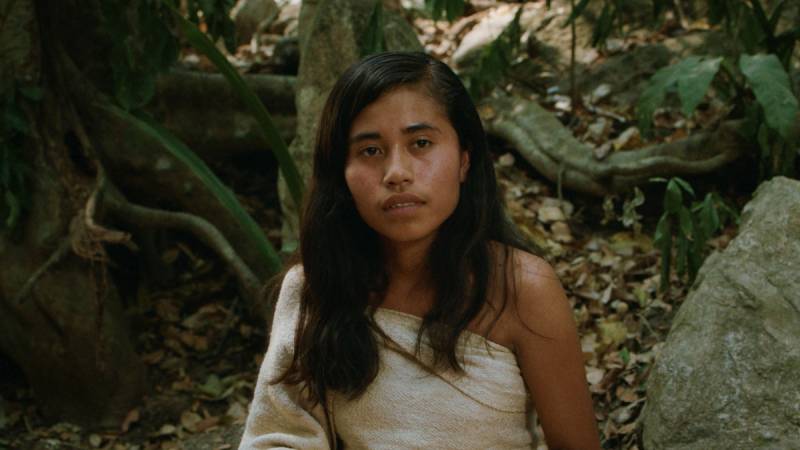




One of the premier figures of the New Argentine Cinema, Lisandro Alonso’s modest yet striking filmography has developed into a cinematic inquiry into the porous conception of national borders in the new millennium. Alonso has not necessarily forsaken realism, but since Liverpool (2008) he’s deployed a literary structure in ruminating upon how globalisation shapes our connection to people (primarily parents and children) lost to history. Yet he plumbs strange, new depths with Eureka, another pseudo-Western that limns the oneiric boundaries between generic traditions and counter-mythologies.
We begin on terra firma as a Danish gunslinger named Murphy (Viggo Mortensen) wanders into a desert town where gunfire is background noise. He briefly parlays with a woman named El Coronel (Chiara Mastroianni) in a saloon, where she paraphrases lines from Cormac McCarthy’s novel Blood Meridian. The prevalent nihilism of this monochromatic west is fishily familiar to Jim Jarmusch’s Dead Man (1995), particularly in the haltingly awkward violence that destroys human life. As Murphy reunites with the daughter he’s been seeking, viewers will recognise the actress as Villbjørk Malling, who played the daughter of Mortensen’s captain in Jauja (Alonso, 2014).
Just when Alonso seems to be approaching self-parody, he pulls the rug out from under our feet: the tale we’ve witnessed is nothing more than a movie playing on network television in a South Dakota trailer belonging to Alaina (Alaina Clifford) and her teenage niece Sadie (Sadie Lapointe). A beleaguered police officer for the Oglala Sioux Tribe Department, Alaina sets off on her rounds as a blizzard approaches, the howling winds accentuating her inescapably bleak circumstances.

The bulk of Eureka is spent in Pine Ridge, adopting colour photography which, by design, is less picturesque than the first segment. Alonso’s emphasis on the space between figures in his compositions is undergirded by potential conflict. Alaina finds a stranded motorist and brings her to the high school where Sadie coaches basketball. The stranger is an actress named Maya and, in the film’s first instance of doubling, is played by Mastroianni. She is there to film another western but is initially asked by Sadie if she’s there to provide bad press. Speaking in the school’s cluttered kitchen, Maya asks Sadie where she’s from, to which the girl responds with a soft laugh, “I wonder that every day.”
In effect, Eureka isn’t about literally answering that question as much as it’s captivated by how cultural images affect one’s conception of where they’ve come from. As his first film foregrounding indigenous characters, Alonso’s positioned himself as an insider looking in, much like Roberto Minervini in his portraits of the American Southwest (indeed, Minervini is a co-producer of this film and consultant on its central section). Minvervini’s work is defined by the syncretic fusion of non-fiction and drama produced in close collaboration with his subjects, and the best moments of Eureka are informed by the non-professional actors. Lapointe in particular is quietly devastating as she gently comforts young people who, like so many she’s encountered before, are on the brink of oblivion.
Lapointe is such a striking presence that Alonso puts himself in a corner trying to keep her the central character while committing to his globalist ethos. So the film’s third segment, a detour to the Amazon in the 1970s, attempts to evince a bucolic, pre-industrial mode of indigenous life. But if this is supposed to serve as a symbolic bookend to a film where, as one character notes, “time is fiction, invented by men”, then the intellectual ambitions of Eureka don’t always operate in harmony with its progressive challenges to white hegemonic narratives. Yet even with its missteps, there’s no mistaking the recurring and, ultimately, enduring totems of violence as benign props in a revisionist Western.
Eureka premiered at the 61st New York Film Festival.











